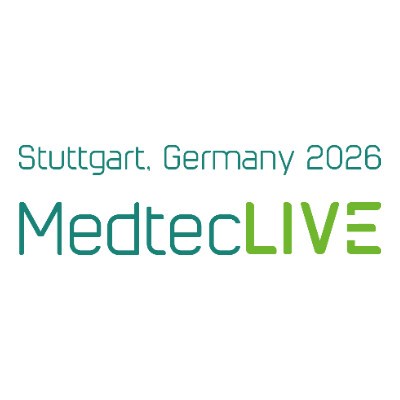Social and economic added value in purchasing - advantages of cooperation with workshops for people with disabilities
Win-win partnership: Learn how workshops for people with disabilities can save medical companies money and increase their social impact
Medical companies face increasing pressure to balance profitability with social responsibility. A solution gaining traction involves partnering with workshops for people with disabilities, as was presented at the BME Buyers Day at MedtecLIVE 2024. This offers both considerable cost savings and a significant social impact. This approach helps companies reduce mandatory compensation levies while accessing quality manufacturing capabilities and enhancing their corporate social responsibility profile.
The Double Bottom Line: Financial Benefits and Tax Advantages
Companies in Germany must employ people with disabilities for 5% of their workforce or pay compensation levies. These levies range from 140 to 720 euros per unfilled position monthly, with special regulations for smaller companies. Recent changes have increased the maximum levy to 720 euros per month for companies with zero disability employment.
The financial impact is substantial across company sizes:
● A company with 110 employees and no disabled employees must pay 51,840 euros annually (6 required positions × 720 euros × 12 months)
● A larger corporation with 2,500 employees and only 0.4% employment rate faces annual levies of 496,000 euros for 115 unfilled positions
Current statistics show only 39% of companies fully meet their employment obligations, while 26% employ no people with disabilities at all, and 35% partially fulfill their quota.
These levies can be reduced by awarding contracts to workshops for people with disabilities. The cost reduction applies to the labor portion of orders, making it an attractive option for labor-intensive manufacturing and assembly work. For instance, a company paying 51,840 euros in annual levies could eliminate this cost through workshop contracts with a work performance worth 103,680 euros.
The financial benefits extend beyond levy reduction. Companies receive full-quality production, but effectively pay less, taking into account the levy savings. This creates a compelling business case, particularly for medical device manufacturers with ongoing production needs.
Breaking Myths: Quality and Capabilities in Modern Workshops for disabled people
Today's workshops for people with disabilities operate sophisticated facilities with international certifications. A prime example is GWW's 40-year partnership with Philips, where 20 employees with disability work directly in Philips' Böblingen facility manufacturing medical displays. The partnership has expanded to include the production of blood pressure tubes for intensive care equipment, with GWW processing 250,000-300,000 tubes annually for worldwide distribution.
Quality control is paramount - every single tube undergoes rigorous testing for leakage and flow rate using specialized equipment adapted for employees with disability. The process uses a color-coded system (red for rejection, green for approval) to ensure accuracy. The results are impressive - some departments have maintained zero PPM (parts per million) defect rates for years, matching or exceeding traditional manufacturing facilities.
The workshops maintain multiple certifications including:
● ISO 13485 for medical device manufacturing
● VDA certification for automotive industry supply
● ISO 9001 quality management
● Environmental certifications
The range of services includes:
● Electronic assembly and testing
● Precision metalworking
● Medical device component manufacturing
● Packaging and logistics
● Quality control and documentation
How the Partnership Works
The Genossenschaften der Werkstätten (gdw) - namely gdw nord, gdw mitte and gdw süd - operate and coordinate a nationwide network of over 2,500 production sites operated by workshops for people with disabilities. This structure enables the handling of both regional and national contracts through a "one-face-to-customer" approach, where clients interact with a single gdw contact while benefiting from the combined capabilities of multiple workshops.
The workshops offer an extensive range of manufacturing capabilities including:
● Packaging and assembly
● Metal processing
● Printing and labeling
● Electrical and electronic assembly
● Woodworking
● Textile and leather processing
● Office services and digitization
● Plastics processing
Numerous companies already benefiting from these partnerships, demonstrating the workshops' ability to meet diverse industrial requirements.
Companies work directly with gdw representatives who handle capacity planning, quality assurance, and delivery scheduling across multiple workshops as needed. This structure allows workshops to handle large-scale production requirements while maintaining consistent quality and reliability.
The implementation process typically begins with capability assessment and pilot projects, gradually scaling up as quality and delivery metrics are validated. Workshops provide comprehensive documentation and traceability, particularly important for medical device manufacturing.
Creating Lasting Social Impact Beyond Business
Partnership with workshops for people with disabilities creates meaningful employment opportunities for individuals who might otherwise struggle to participate in the workforce. These positions offer more than just employment - they provide structure, purpose, and community integration.
The impact extends to corporate culture, raising awareness and understanding among company employees. Workshop managers report that contact with these partnerships often changes the perception of the abilities and contributions of people with disabilities.
Companies engaging in these partnerships demonstrate concrete commitment to social responsibility, contributing to a more inclusive economy while maintaining high quality standards. This authentic approach to corporate social responsibility resonates with stakeholders and supports broader diversity initiatives.
Conclusion
For medical companies seeking to optimize costs while enhancing social impact, partnerships with workshops for people with disabilities offer a proven solution. The combination of significant financial benefits, quality production capabilities, and meaningful social impact creates a compelling case for engagement. As more companies discover this model, it continues to demonstrate that social responsibility and business success can go hand in hand.
Editorial notice:
This article is based on the corresponding presentation during MedtecLIVE 2024 and was created with the support of AI. The supporting programme of MedtecLIVE 2026, which will take place from 5 to 7 May 2026 in Stuttgart, also offers numerous lectures. The trade fair brings together suppliers, providers from the development and production of medical technology, OEMs, distributors and other players in the medical technology community.


